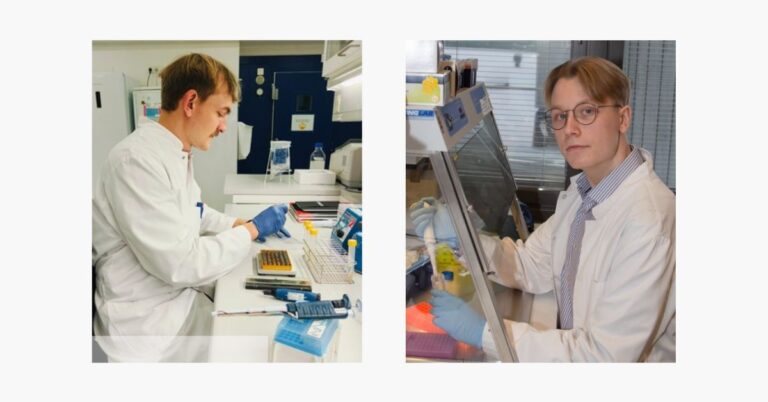Early-careers: Young Researchers' Universe
A space for young researchers — such as early-career scientists, PhD students, fellows and residents — who want to publish, grow, and connect. Access practical guidance, inspiration, useful links, and clear answers to common questions in one place.

Spotlight: How to Publish and Prosper during your PhD
There are ways to achieve your doctoral degree by publication – fittingly called Thesis by Publication – as opposed to obtaining the degree by a final monograph-style dissertation. Possibilities and requirements vary depending on the geographical and disciplinary context, and you might wonder why you should publish during your Ph.D. if publications are not typically required in your field.
While publications require effort and stamina – they truly do – the benefits often outweigh the costs. These benefits include confirming the validity of your research, improving your writing skills, engaging with those interested in your work, and strengthening your future academic career prospects.
Drawing on over a decade of experience in the academic publishing industry, we at PMI Journal will outline some benefits of early publication and provide advice to help you succeed. Listed below:
1. Test your data and establish yourself as a researcher
The journey of scientific discovery begins with curiosity, but its true impact emerges only when knowledge is shared. Unpublished research is untapped potential that could help shape the scientific landscape, resolve pressing problems, and inspire future breakthroughs.
These are clear benefits for the broader world, but presenting your findings to reviewers and readers is also beneficial to you.
Publishing not only tests and improves your research but also sharpens your thinking. While clear thinking in research often leads to clear writing, the writing process often reveals gaps in the clarity of your research. The act of writing will almost always present unforeseen difficulties and blind alleys, forcing you to revisit the data, apply new approaches, and consistently reevaluate every aspect of the research. The causal direction between writing and scientific clarity is not straightforward.
Publication will help you grow as a researcher. Writing a manuscript demands clarity, precision, and critical thinking – skills that will define your scientific career. At PMI, reviewers are experts in your domain and their advice and recommendations will refine your paper and your research. It is through this process that raw findings transform into validated contributions, earning recognition from the academic and scientific community.
Not ready for a full article? Start with a mini-review
2. Strengthen your professional writing skills
All researchers are, by necessity, professional writers. While not everyone welcomes this reality, the truth remains that the success of scientists is not measured solely by the ideas or data they provide. Success as a scientist is also rooted in analysis and the language used to describe the results – usually in writing.
At PMI, we encourage emerging scientists to embrace the challenge of scientific writing. Our editorial team is committed to guiding researchers through the publication process, ensuring that your work reaches the right audience with clarity and precision. For an example see our writing tips for early-career authors.
For many researchers, academic writing in a second language poses a significant challenge. How could you write a scientific paper when you feel insecure ordering a beer at a bar in a foreign language? From here, it is easy to conclude that native speakers must have a huge advantage. If that were true, English-speaking researchers would dominate all scientific fields, which is not the case. Scientific writing prioritizes structure and clarity over grammatical perfection. However, correctness remains important. Fortunately, AI tools can help refine your sentences. You are more likely to be rejected for weak science than poor grammar.
Mastering professional writing improves your chances of publication, but it also increases your career opportunities. Researchers with strong writing abilities are better equipped to secure funding, collaborate with global experts, and influence their field. Institutions, funding collaborators, and employers recognize researchers with strong writing skills who can effectively convey complex ideas.
3. Engage in conversations with peers and others interested in your research
Scientific progress is not a solitary endeavor – it thrives on dialogue, collaboration, and the exchange of ideas. Engaging in conversations with peers and interested readers is essential for refining your research and gaining new perspectives. This process begins with publishing your first paper. By taking that initial step, you establish yourself within the scientific community and create opportunities for valuable discussions that can shape and strengthen your research. Be inspired by our ‘Meet the Next Generation of Researchers’ interviews.
Publishing your research is the gateway to deeper engagement. It opens the door to valuable feedback and constructive critique from colleagues and experts who can help you identify gaps, refine methodologies, and enhance the clarity of your findings. Once your work is out there, discussions about it challenge your assumptions and strengthen your arguments, ultimately leading to more robust research.
Scientific discourse also fosters collaboration. By publishing and actively participating in discussions, whether through conferences, seminars, or online forums, you increase your visibility and establish professional connections. Publishing with PMI can help your work reach a broad scientific audience, exposing it to diverse perspectives. The multidisciplinary insights gained from these interactions may lead to joint projects, funding opportunities, and interdisciplinary innovations that advance your personal growth, enhance your research, and contribute to the broader scientific community.
Conversations, face-to-face or online, also help translate your findings into real-world impact. Engaging with policymakers, clinicians, other industry professionals, and the public ensures that your research reaches those who can effectively apply it. It all starts with publishing your work.
4. Improve your resume and career
Pursuing a doctoral degree is a rigorous and transformative journey, but it is also an ideal time to lay the foundation for a successful academic or professional career. One of the most effective ways to enhance your academic and professional prospects is to publish your research. A strong publication record sets you apart, demonstrating your expertise, dedication, and ability to contribute valuable knowledge to your field.
Publishing during your doctoral studies not only validates your research but also establishes your reputation as a credible scientist. It signals to potential employers, funding agencies, and academic institutions that you are an active contributor to the scientific community. Hence, a well-documented research portfolio enhances your opportunities for postdoctoral positions, faculty appointments, and industry roles where scientific communication is highly valued.
Moreover, published work increases your visibility and opens doors to collaboration. By sharing your findings in reputable journals, you gain recognition from peers and create networking opportunities that can lead to joint projects, mentorships, and funding. Engaging with the broader scientific community strengthens your professional relationships and allows you to exchange ideas with leading experts in your field.
In addition to career advancement, publishing refines essential skills such as scientific writing, critical thinking, and data analysis. The peer review process helps you develop resilience and adaptability, teaching you how to incorporate feedback and improve your research. These skills are invaluable in academia, industry, and any research-driven profession.
PMI recognizes the importance of supporting early-career researchers. We encourage doctoral candidates to take the next step transforming their findings into high-quality manuscripts and share their work with the world. Our editorial team is committed to guiding emerging scientists through the publication process and ensuring their research receives the attention it deserves.
Publishing research is no simple task, but if you feel you have the time and capacity, taking the initiative can significantly benefit your career. If you have any doubts, you can consult your supervisors or reach out to us at PMI. We will be happy to help build your academic and professional profile and expand your network. Start by reading our author guidelines to prepare your research for publication. We look forward to hearing from you and helping you advance your career.
5. Match scope with journal
Publishing your research is a significant step in your academic journey, but ensuring that your work reaches the right audience requires careful consideration. One of the most crucial aspects of successful publication is selecting a journal that aligns with the scope of your research. Read more about PMI’s scope here. This is why researchers should resist the strong inclination to submit their papers to a high-impact basic science journal. Scope is more important than a journal’s prestige.
Submitting to a journal with a matching focus increases the likelihood of acceptance, strengthens the quality of peer review, increases the impact of your findings, and ensures that your work contributes meaningfully to ongoing discussions in your field. Publishing with PMI offers a unique opportunity to place your findings within the broader scientific fields of pathology, microbiology, and immunology.
If you fail to properly screen journals, you risk submitting your work to one that does not align with your research. This can lead to unnecessary rejections and severe delays.
Before writing your paper, you should consider where to publish it. Identifying the appropriate journal early on allows you to tailor your article according to the author guidelines, model articles, and the intended readership. Explore published examples from recent PMI issues if you’re interested in finding model articles. If you have any doubts, do not hesitate to contact our editors. At PMI, we are happy to answer all of your questions.
At PMI, we provide rigorous peer review, ensuring the highest standards of evaluation. Peer review is not just about accepting or rejecting manuscripts; it also provides constructive feedback to enhance the quality and rigor of the research. We fully recognize that this is particularly beneficial for researchers in the early stages of their careers. That is why we provide the support we wish had existed when we published our first work.
6. Bibliometrics: the challenge of summarizing achievements in numbers
In today’s competitive research landscape, bibliometrics plays a crucial role in shaping scientific careers. As a young researcher, understanding these metrics can help you gauge the impact of your work, enhance your academic visibility, and navigate funding and collaboration opportunities.
Bibliometrics refers to the quantitative evaluation of research impact, including citation counts, journal impact factors, and author-level indices such as the “h-index”. These metrics help assess research productivity, influence, and collaboration networks. While no single metric defines scientific excellence, bibliometrics offer insights into how research contributes to its field.
For early-career scientists, bibliometrics is particularly relevant in several ways. First, they influence hiring, promotions, and funding decisions, as institutions and grant agencies often use them as indicators of research quality. Second, they guide researchers in selecting reputable journals for publication, balancing high-impact journals with those that offer broader accessibility and faster dissemination. Did you know that the PMI Journal has a CiteScore of 4.7 and a median time from submission to first decision of just 18 days? Third, they highlight emerging trends and key contributors in a field, helping young scientists position their work strategically.
However, bibliometrics should be approached critically. Citation counts do not necessarily reflect quality, and metrics like journal impact factors can be misleading. Alternative indicators such as altmetrics, which track social media mentions, media coverage, and policy citations, offer complementary measures of impact, especially for interdisciplinary and applied research. However, altmetrics should complement traditional metrics, as they can be influenced by social media trends and self-promotion.
At PMI, we regard bibliometrics as a valuable tool for assessing academic research impact – not definitive measures of success. Whether they are emerging or established, researchers can use them strategically while focusing on producing rigorous, innovative, and collaborative science.
Scientific challenges
Editors from our PMI Board have highlighted some of the key scientific challenges in the field today.
Writing tips for early-career authors
Guide with practical advice from our Editors-in-Chief, plus links to author guidelines and step-by-step guide to writing your manuscript.
The Next Generation of Researchers
Explore portraits of emerging scientists published by the PMI Journal. Inspiration and practical advice in one place.

Technotes
Brief, peer-reviewed reports that share practical methods, assays, protocols, validation data and troubleshooting. Easy to cite and spotlighting reproducible know-how.
Mini-Review
Mini-reviews offer an excellent opportunity to explore new and emerging fields, providing concise yet comprehensive summaries that are accessible to non-specialists.
FAQ??
Friday 12 April 2024 editors, authors, and editorial staff from around the world gathered at the Medical Museion in Copenhagen to celebrate the 100th anniversary
FAQ??
Friday 12 April 2024 editors, authors, and editorial staff from around the world gathered at the Medical Museion in Copenhagen to celebrate the 100th anniversary





